Woman’s WORTH Promotes Growth, Racial Healing
By Yesenia Pacheco, ’22/'23
Aleyshka Barbosa, ’23, a former participant of Woman’s WORTH, an initiative designed to center the experiences of minority women, reached out to Yesenia Pacheco, coordinator for Student Transition, Access and Retention, to support the program. She soon became a co-facilitator and helped breathe more life into the program – below is Yesenia’s recount of how she did that.
The 2022 Racial Healing Circle had a profound impact on Aleyshka Barbosa.
Aleyshka, a senior Social Work major who interned for the Office of Student Transition Programs in the spring of 2023, felt that more women of color should have the opportunity to participate in the transformative experience known as Woman’s W.O.R.T.H (Working on Rebuilding Trust and Healing), an initiative that was spearheaded by Maya Lewis, professor of Social Work, and I during my internship for the Office of Student Conduct.
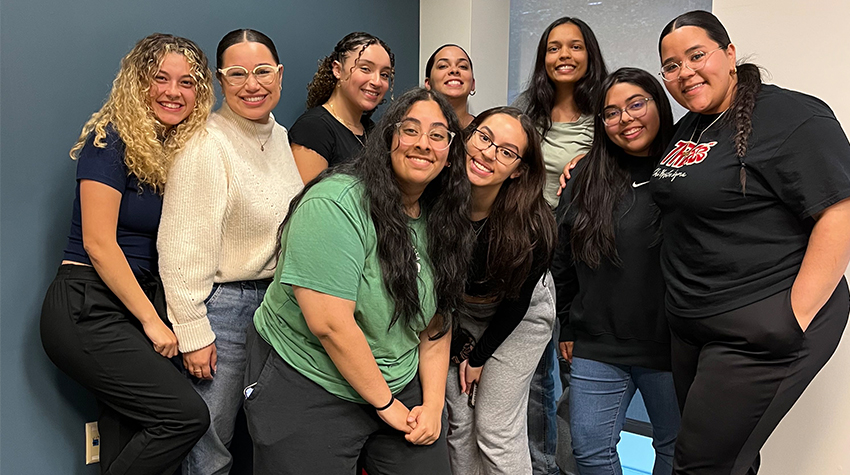
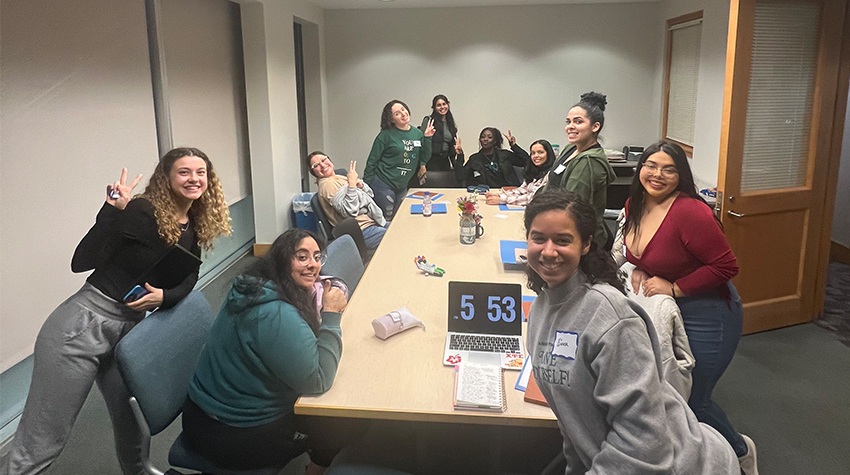
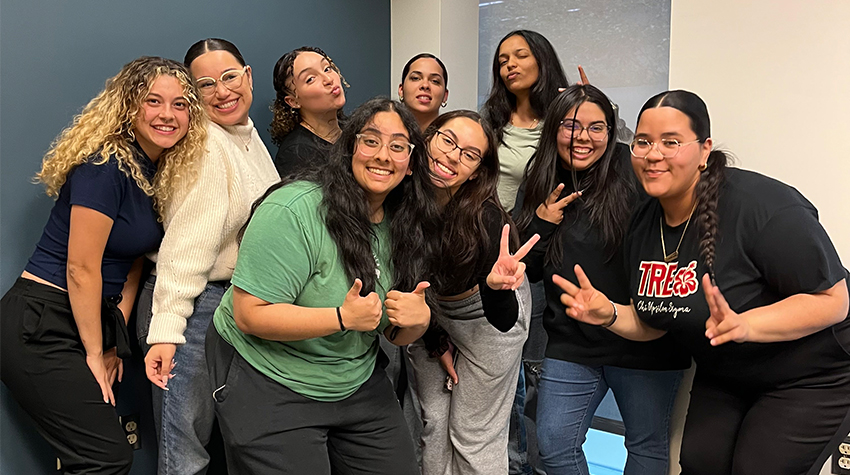
These circles truly highlight the importance of creating safe spaces for women of color to discuss and heal from their experiences while also navigating their academics and dealing with societal expectations... Overall, the Woman’s W.O.R.T.H. Racial Healing Circles is a testament to the power of community, conversation, and support in fostering healing and empowerment among women of color.
Aleyshka soon reached out to me and encouraged me to reignite Woman’s W.O.R.T.H. in 2023 with a new group of incoming and returning students. Based on the survey and testimonials from the 2022 cohort, she knew that the need for the circle was important for holistic growth and healing.
The 2023 cohort consisted of 12 first-generation women of color who met for five sessions, double that of the first cohort in 2022. Ana Edmondson, assistant vice president for Student Transition, Access and Retention, provided the circle with proper supplies, texts and a comfortable space to have the sessions while Aleyshka and I cultivated a safe space for women with diverse backgrounds to be able to have tough conversations in order for healing and the empowerment of the women to take place.
Books Used for 2023's Woman's WORTH
- The Pain We Carry by Natalie Y. Gutierrez
- Women Don’t Owe You Pretty by Florence Given
- Hood Feminism by Mikki Kendall
- For Brown Girls with Sharp Edges and Tender Hearts by Prisca Dorcas Mojica Rodriguez
- It Didn't Start with You: How Inherited Family Trauma Shapes Who We Are and How to End the Cycle by Mark Wolynn
- Girl Gurl Grrrl: On Womanhood and Belonging in the Age of Black Girl Magic by Kenya Hunt
Aleyshka wanted to use the wisdom from the previous year and reimagine the safe space but maintain the same foundation and poignant topics that had been discussed within the circle. That being said, she leaned on me to help guide the creation of a reflective workbook for the circle, which was grounded in concepts and principles developed by several Black and brown female authors, including Maya Angelou and Mikki Kendall.
The sessions were divided into five different topics that covered being a first-generation student, attending a predominantly white institution, bodyism, racial inequities and family/personal trauma.
Each session had readings, poems, videos and questions for participants to be able to identify their roles in their healing, strengths, as well as communities in and outside of the university. 100% of the participants indicated in the Woman’s W.O.R.T.H. Racial Healing Circle evaluation that the sessions helped them with the following:
- Work with students and staff to identify and demonstrate practices for navigating college, achieving goals, and living a healthy life.
- Engage with students, staff, and faculty of culturally diverse backgrounds to identify the strengths and values of culturally diverse communities and identify their role in promoting social justice.
- Increase their sense of belonging, engagement, and development at Stockton.
“It's very important, especially in a predominantly white institution like Stockton, to connect with people with similar views and struggles like you. It’s rewarding, healing and refreshing to be comforted and heard by your fellow peers who are not judgmental. It is important to have conversations that society avoids and address them,” one participant wrote.
Personally, watching the transformation from the first year to the second year of the racial healing circle felt extremely emotional. These circles truly highlight the importance of creating safe spaces for women of color to discuss and heal from their experiences while also navigating their academics and dealing with societal expectations.
“It was more than I could have ever imagined,” Aleyshka shared on her experience as a co-facilitator of the program. “This was a passion project I had continued from my mentor, Yesi, and I was fully supported and empowered by my other mentor, Dr. Edmondson. The experience could bring me to tears; the willingness of all the participants to heal, to have the hard conversations, to learn, to empower each other was truly a radical space of women empowerment and healing.”
Cohort Diversity
Provided by Yesenia Pacheco
In order to support truthful and impactful conversations that changed the trajectory of all participants, the cohort was designed to be as racially and socially diverse as possible. Prior to the program, participants were invited to self-identify themselves, which is shared below.
By building upon the foundation established in the previous year, we successfully created a supportive and empowering environment for women from diverse backgrounds. The participants finding the sessions to be “rewarding,” “healing” and “essential” demonstrates the importance of creating spaces where individuals can openly share their experiences and be heard without judgment. These conversations allow participants to address societal issues that are often avoided or suppressed and instead promote healing, growth, and empowerment through journaling, reflections and storytelling.
Overall, the Woman’s W.O.R.T.H. Racial Healing Circles is a testament to the power of community, conversation, and support in fostering healing and empowerment among women of color.
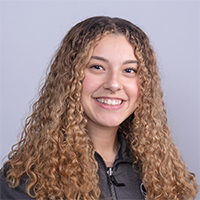
About the Contributor
Yesenia Pacheco is coordinator for Student Transition, Access and Retention, a 2023 alumna of the Master of Social Work program and a new member of the Campus Committee on Diversity & Inclusive Excellence.
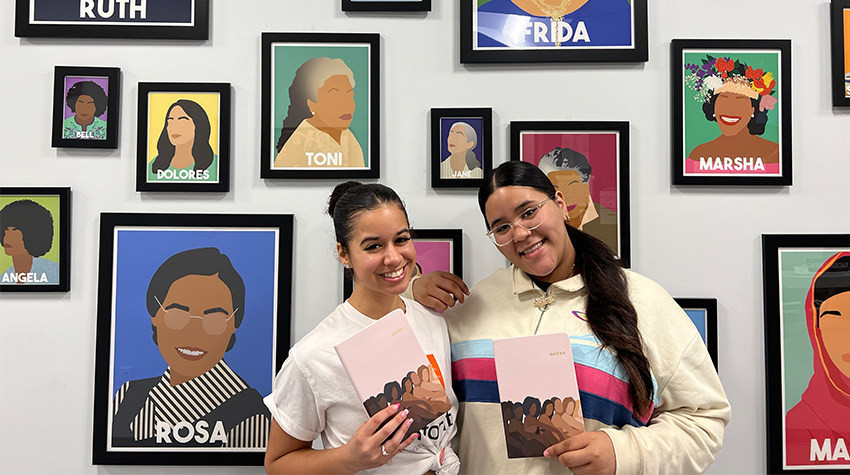
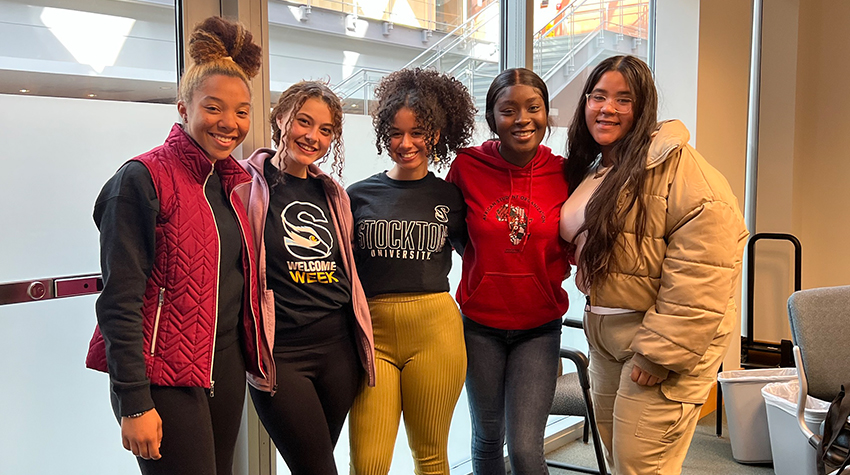
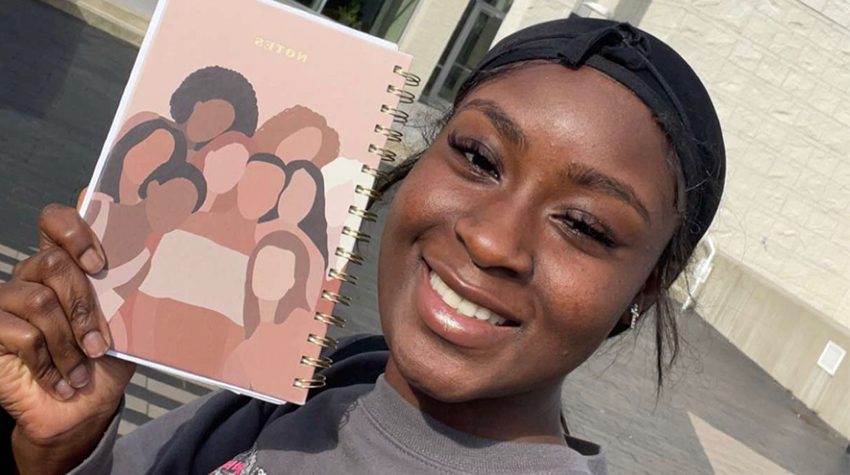
Unhealthy racial experiences in higher education have created many barriers for first-generation women of color and require new initiatives to help provide healing from these experiences.
With the recognition of the importance of safe spaces on campus, Maya Lewis, associate professor and chair of the Social Work program, and graduating senior Yesenia Pacheco collaborated on “2022 Woman’s WORTH,” a racial healing circle program dedicated to providing a safe space for students who identified as first-generation women of color.
The program, an acronym that stands for “Working on Rebuilding Trust and Healing,” invited a cohort of six first-generation women of color to participate. The six students were given a reflection journal and a read-along workbook that was used during the entirety of the five sessions. Participants voluntarily signed up to attend all sessions and completed the assigned articles biweekly relative to each session discussion.
Other Related Articles


